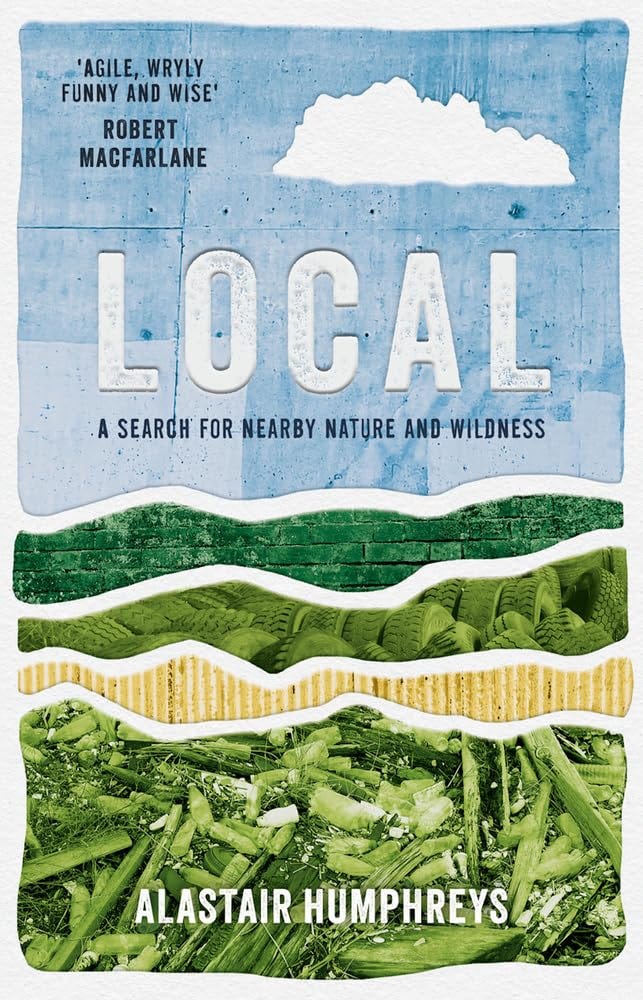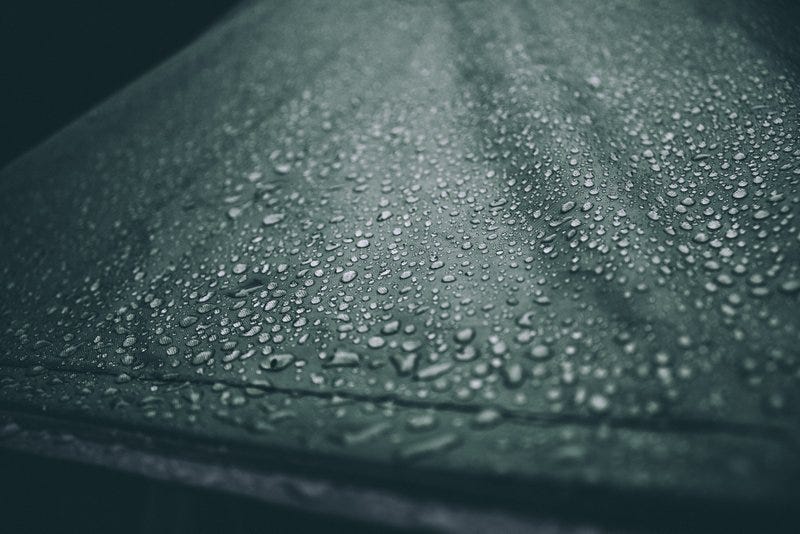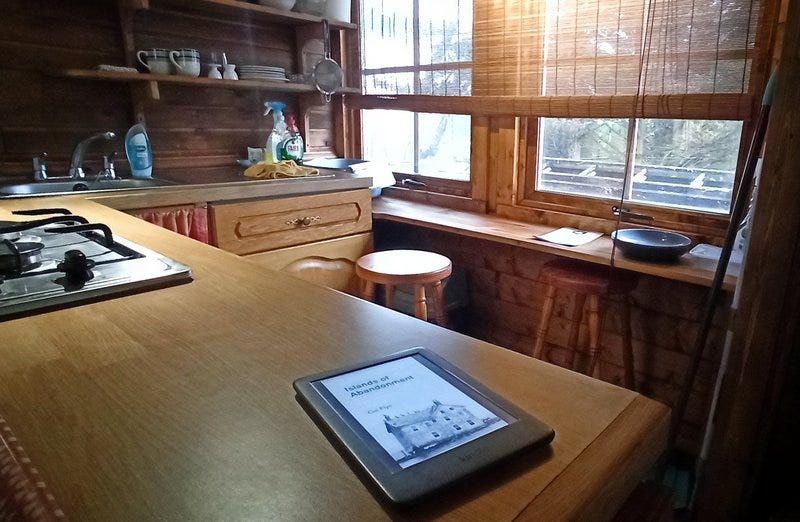How I Learned To Read Books Again
Some (hopefully!) practical tips.
Hello! This is Everything Is Amazing, a newsletter about science, curiosity and wonder.
On Friday (and a bit behind my original schedule), Season 6 begins! If you’re new in these parts, here’s what it’s going to be about.
As I write this, the current affairs news is particularly heavy with awfulness. And as always with conflicts like this, it’s innocent civilians bearing the brunt, which is devastating to see.
I’m not a psychologist, so I am the wrong person to suggest the best ways of dealing with the weight of such events. (These tips from someone specializing in the study and treatment of trauma and grief might be useful.)
But if it’s your way of dealing, I recommend finding a little solace in a good book, the kind that reminds you that the human capacity for empathy and kindness is just as powerful as…all that other stuff that happens in this grimly complicated world.
I’ll have more to say about book-reading in a minute (specifically how I lost and regained my ability to do it, for paid subscribers only) - but first, a recommendation of what’s clearly going to be a terrific book for appreciating where you are and everything that you have around you right now.
If you’ve been reading this newsletter for a while, you’ll know that my friend Alastair Humphreys is the good kind of idiot.
He’s prone to bouts of adventurous lunacy like sleeping on hillsides in a watertight sack, busking across Spain with a violin despite having very little discernible talent for playing it, and, most recently, shamelessly thieving another adventurer’s brilliant idea and boiling it down to something UK-sized:
My legal team has just informed me that I should also mention that Alastair is an internationally-respected professional adventurer and author who coined the phrase “Microadventures” and wrote a really wonderful and inspiring book of the same name, and also he spent 4 years cycling round the world, which I’m told is quite impressive, and so on, and so forth.
(That should cover my back legally, while giving me a little more leeway to insult Al even further, so I’m pretty happy with how that paragraph turned out.)
Since 2020, the total idiot known as Al Humphreys has been exploring the English regional map around his home, as I mentioned in one of the earliest editions of Everything Is Amazing back in 2021.
Now he’s turned that into a book, built around a fascinating premise:
“Can this unassuming landscape marked by the glow of city lights and hum of busy roads hold any surprises for the world traveller or slake his wanderlust? Could a single map provide a lifetime of exploration? Learning more about nature and wildness than in all his years in remote environments, he discovers a newfound appreciation for his neighbourhood once he slows down enough to really observe it for the first time. Local is a celebration of curiosity and time outdoors, and a call to arms to protect the wild places on our doorsteps.”
It’s out in January, and you can pre-order it by clicking here (or here if you’re in the UK). I reckon you’ll love it.
In other news, here’s an important reminder that most scientists are also the good kind of idiots:
(Via the wonderfully idiot-rich Depths Of Wikipedia.)
OK, to business - and a ruined tent.
The smoothest reading experience of my life was in a laundry room in Orkney in 2009.
A few hours before, I’d been fighting a Scottish storm using my socks. I’d come to Orkney with too little money to rent accommodation, so I brought my ragged tent that I’d been using since I was an archaeology student ten years earlier. This was to be its final trip - and I only discovered this just before midnight, when the wind turned into a gale and started buzz-sawing sheets of rain into the side of the tattered, holey canvas of my tent.
Zipping up the front of it did little to protect me. In came the water, and away I backed, creating a dam made of socks and underpants in an attempt to halt the water’s advance and mop up the worst of it. If that gave me half an hour’s grace, maybe that might be enough time for the storm to blow through?
Then, around midnight, with a ripping sound I could feel in my teeth, the tent exploded in three directions - and I was suddenly sat in the open, in a field in the middle of a rainstorm, clutching handfuls of underwear and shrieking like a cheerleader.
I bundled my instantly sodden possessions into my rucksack (luckily this was an era when I had few electronic gadgets, and my phone was of the plastic-brick variety) and ran for the front door of the house where the campsite owners were living.
By some miracle, they were still up - and after I hammered at the door, they opened it and stood there looking at me.
“It’s raining, then,” they said.
“I BELIEVE THAT’S THE CASE,” I screamed over the sound of the wind, rivulets of water windmilling off me in all directions.
“Ah! You should probably get out of it, then. Come on in.”
And that’s how I spent a night in a laundry room in Orkney, too bewildered to fall asleep - and desperately reading my sodden paperback copy of Jon Krakaur’s Into Thin Air, a terrifying account of the 1996 Mount Everest disaster, before it dissolved away completely in my hands.
On reflection, this was the wrong choice of book to bring with me. Or maybe it wasn’t. I do remember being so utterly gripped until the final page, at which point I noticed the sky was getting lighter. It’s a magnificent piece of writing, absolutely merciless in how it pulls you deeper and deeper into the dread of watching the people involved make terrible judgement calls and wholly avoidable, ego-fuelled mistakes that will lead to tragedy. I would recommend it to anyone, both as a masterclass in non-fiction storytelling and as one of the most alarming things I’ve ever read. In places I could feel the hairs on the back of my neck standing on end.
Or maybe that was a delayed reaction from the demise of my tent. I don’t know. I just know that I roared through that 368-page book in just 5 hours, and I hadn’t done that for years.
I also haven’t done it since. If I’d hoped I’d regain my childhood ability to binge a novel or even a trilogy in a single weekend, I was sorely disappointed.
It wasn’t long after this that my late Ma grew very ill, and I entered the most stressful decade of my adult life - and my ability to focus on anything for more than a couple of minutes at a time went completely out the window. Just - gone. I’d sit with a book I wanted to read, I’d run my eyes across sentences and down paragraphs, and after a minute or two I’d realise I hadn’t read any of it. I’d do it again, and the same would happen again. And again...
And then after a few days of this, inching my way through the first few dozen pages of a book, I’d go to my Goodreads account where I was taking part in its yearly Reading Challenge, and I’d lie to it - logging that book as “Read,” based on those first twenty or thirty pages.
(This is still something I am not proud of, to put it mildly, and I’ve recently made a point of circling back and fully rereading all those ones I marked as three stars or less, just to be sure I wasn’t being a total monster to those authors.)
Since my ability to write is roughly 99.9% dependent on my ability to read (honestly, I think I just work like a bucket - my writing feels like the overspill of other people’s words I’m too full to contain), I figured this meant I was done as a writer. Nothing was going in the tank, so nothing would happening in the engine.
Then, as I explained to Valorie Clark a while back, I decided to stop trying to be a writer, and used my savings to spend a year learning to read again.
At the time, this felt like the worst kind of foppish self-indulgence: reading? Seriously? But now I think there was no other way to get myself writing again, and thank god I knew it enough to act upon it.
I am now, once again, a reader of books, magazines, articles and newsletters, all the way to their ends. Which is fortunate! Writing this newsletter has me constantly behind with things I need to read for upcoming posts - which is a nice problem to have because I’m enjoying the act of reading again, but it’s also something like walking on ice in slippery shoes. I am permanently one book away from ending up on my ass.
(Or - some less inelegant analogy. Sorry, I should have spent more of this morning reading things.)
Am I the only one to have struggled with this? Doesn’t seem like. Take this column by Josephine Tovey in The Guardian from 2019. And this piece in Vox suggests it’s a disrupted state of mind that was rife during the pandemic…
And in Enchantment (2023), Katherine May writes:
“I am still unable to read books. Reading is the whole of me, the foundation upon which I rest, and these days I cannot do it. It is a dirty secret that I must keep, an ugly act of faithlessness in an author. I do not want to read. I cannot read. I cannot shepherd my attention towards a page of text and take in any words. I cannot complete a whole chapter without my conscience excusing itself and quietly retreating to an inner sanctum to which I have no inner access. I cannot sit still. I cannot concentrate. Surely this is some kind of malady for which there ought to be a cure?”
Good question! And I have others. Is it maybe an age thing? I should ask around. Is it a generational thing, where I’m part of a social group of people who used to read, but unlearnt it because of being piledriven in the brain by the Information Revolution, and now we’re all finding our way back to books in a way newer, non-internet-shocked generations won’t have to? (Maybe this is the case! If so, hooray for the kids…)
I don’t have any firm answers, even for myself. I’ve wrestled with trying to find some (and with writing this particular newsletter!) for a good while now.
But I do know that before I couldn’t read books, and now I can - and here, maybe, is how that’s happened.





